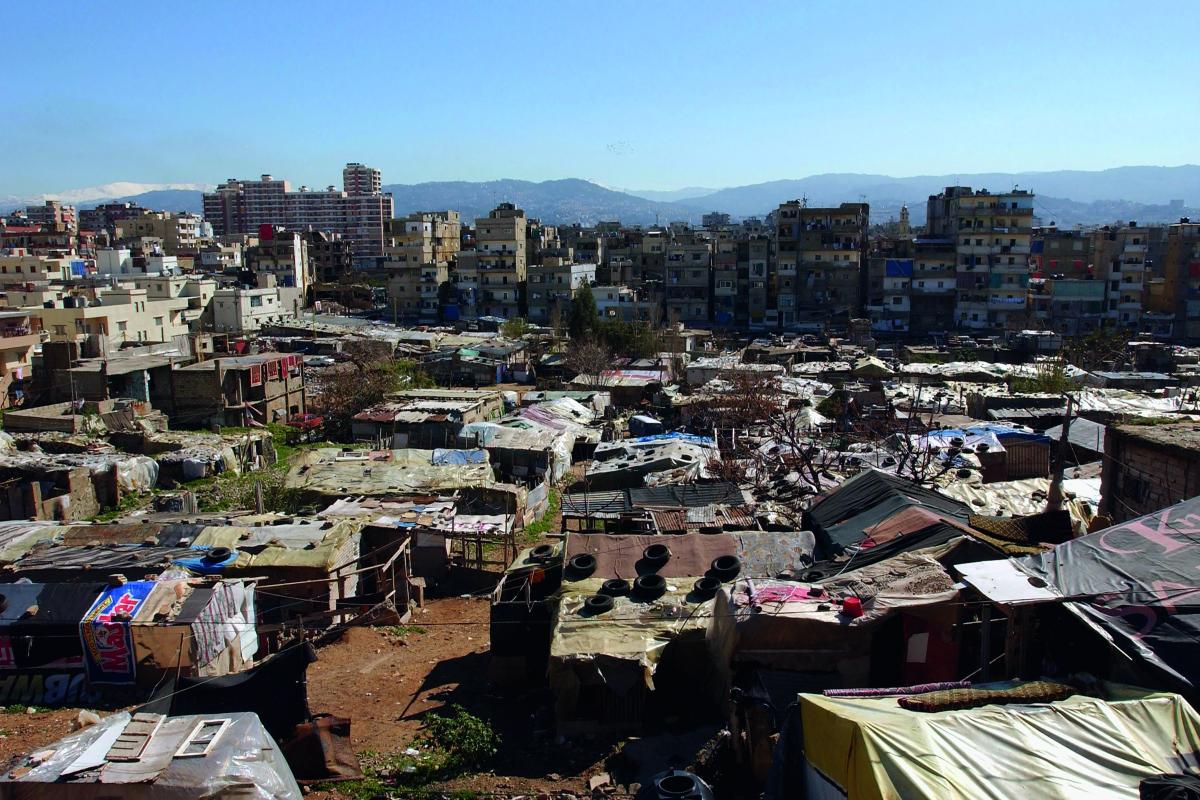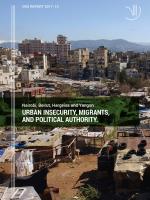
Urban Insecurity, Migrants and Political Authority
By 2035 an estimated 60 per cent of the world’s population will live in cities. Due to the fast-growing rate of urbanisation, many future conflicts are expected to take place in urban terrains. Therefore defence and security organisations are becoming increasingly interested in understanding the trends and dynamics of cities. This report under the DIIS Defense and Security Projects contributes with a deepened understanding of the security challenges in four cities – Nairobi, Beirut, Hargeisa and Yangon – with a particular focus on mass migration and political authority.
As many other cities in the global South, Nairobi, Yangon, Hargeisa and Beirut, are fragile economic hubs, destinations of displaced populations and migrants or sites of terrorist attacks and armed conflict. They have a high number of unregistered informal migrants. Indeed, much of the growth that the four cities experience has led to unmanaged growth of informal settlements.
The report suggests that while high rates of immigration may lead to conflict, this is by no means always the case. In this regard, the main findings of the report are:
- Cities under stress: Extensive immigration puts cities under stress as available land, clean water, and public services are stretched. At the same time, migrants usually prefer the difficult situation in the city to the conditions they left in rural or conflict-affected areas.
- Securitising migrants: City and national governments see migrants as a challenge to positive urban development, and they are often seen as a security threat. While this is understandable, it has negative side effects, including legitimising harsh security measures. This creates a generalised perception of insecurity that develops into mistrust and lack of social cohesion. Urban refugees and poor migrants are therefore often forced to rely on the informal – sometimes illegal – economy and practices as part of daily survival.
- International organisations: They may provide crucial humanitarian aid, but may at the same time reinforce negative securitisation of migrants. This happens when their push to recognise migrants and refugees is overshadowed by, for example, anti-terrorism agendas, foreign investment interests, and fear of refugee flows to donor countries.
- Plural authority and neglect of migrants: Formal governments do not hold a monopoly of force, urban planning or other functions that are associated with public authority. There are negative consequences of contexts that are characterised by a plurality of authority. However, the informal authorities help migrants to survive in difficult circumstances, especially in informal settlements that commonly experience neglect by central and city governments.
DIIS Experts






